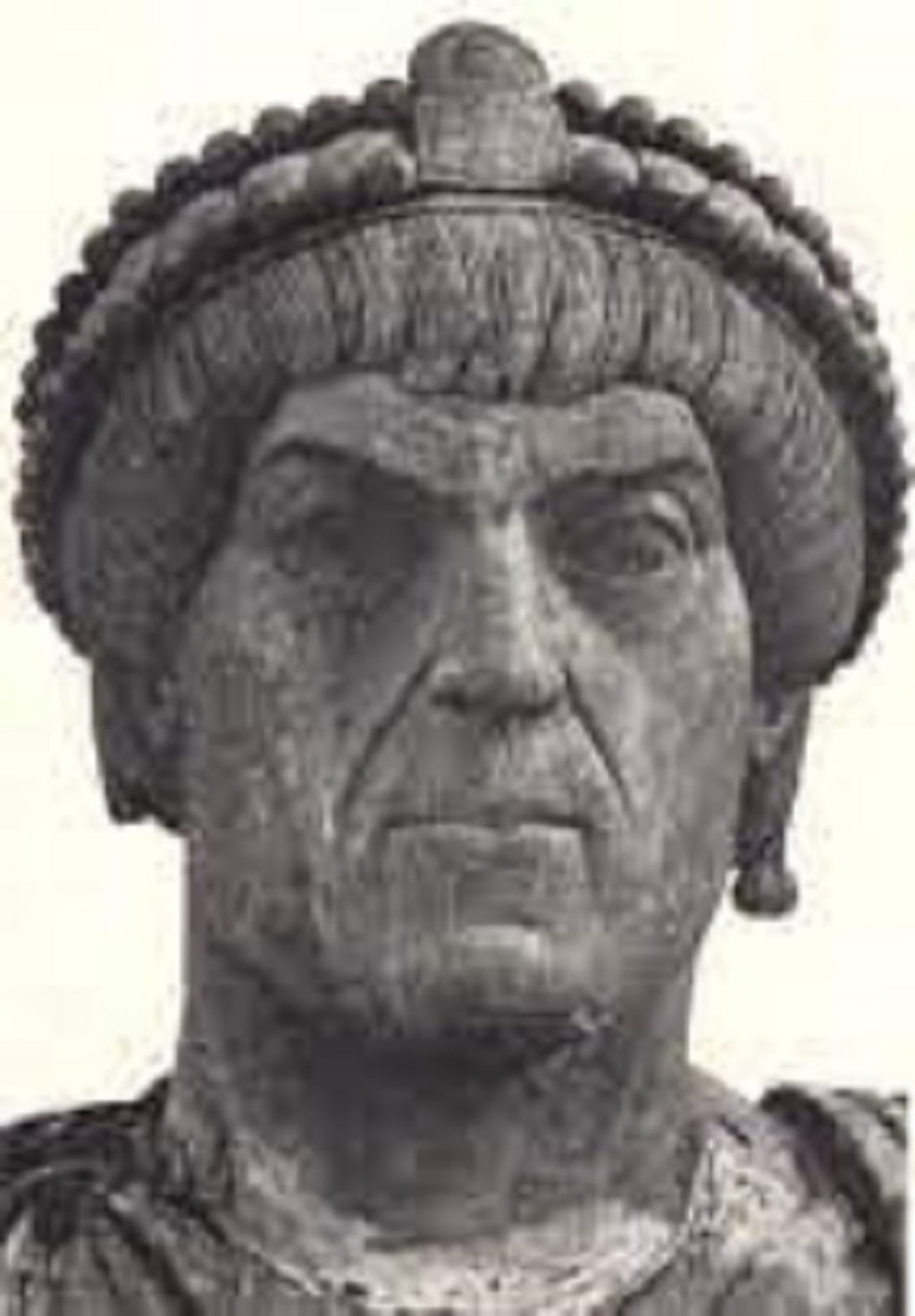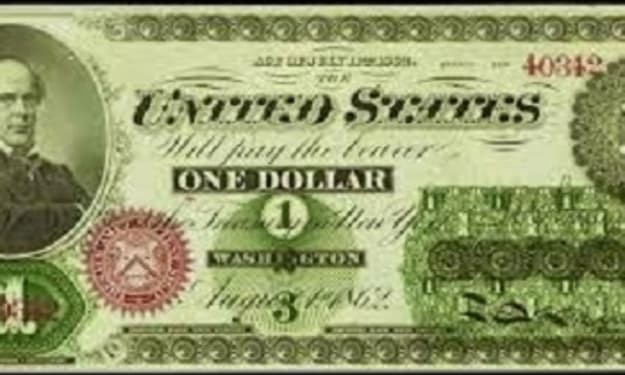Don't Lose Your Cool
The Fate Of The Empire Depends On It

Some temper tantrums can change history.
The Roman Empire of the 4th century AD wasn’t doing very well at all. Constantine the Great managed to consolidate the empire under his rule, make Christianity the official religion, and move the capital to Constantinople, which was more strategically located. However, Constantine was a brutal ruler and father (he boiled his first wife to death, killed his oldest son, and ordered his name stricken from the historical record). His three remaining sons, raised in this cutthroat political environment, inherited the empire after his death and were immediately at each other’s throats, sparking civil wars that raged for sixteen years until Constantius II emerged as sole emperor in 353.
The Emperor Julian the Apostate turned out to be a big surprise, on a number of counts. Nearly his entire family was massacred by Constantius II in the dynastic struggles for control of the empire. Julian kept his head down in exile, diving into his education and trying to downplay his membership in the royal family, which was a death sentence. He converted from Christianity to paganism at the age of 20, which none of the Christians in his family approved of.
Julian hid out in Athens, praying to illegal gods, while civil war and usurpers eventually left Constantius II in sole control of the Empire. Constantius II summoned Julian to appear before him in 355. He went reluctantly, since it was Constantius who had wiped out his whole family. He figured he would be next.
Constantius instead made him Caesar, or junior emperor, of the western empire and sent him to Gaul to deal with barbarian uprisings. The scholar-turned-prince needed to learn how to soldier, and fast. He lived and trained like a common legionnaire, to the astonishment of his own troops. He led them in successful campaigns and always remained with them, confounding their idea of what an emperor should act like. They loved him for it. Two years later, he stopped a tax increase in the provinces under his rule, earning the devotion of the citizens. His troops proclaimed him emperor in 361 and he marched on Constantinople. Civil war was avoided by the death of Constantius II, which left the orphan academic who denied Christianity as the sole ruler of the Empire.
The future emperor Valentinian wasn’t off to a great start. After a disastrous campaign against the Alemanni in 355, he was blamed for the defeat and cashiered out of the army. He found himself exiled a couple of times, and was brought back by commanders who knew him and valued his skills in the field, particularly a cavalry officer named Jovian.
Meanwhile, Emperor Julian the Apostate provoked a war with Persia and invaded their territory in 363. Julian was killed in battle and Valentinian’s pal Jovian was elevated to the purple while the army was still in Persian territory, surrounded by the enemy. Jovian promoted Valentinian and they managed to get the legions out of danger by surrendering wide swaths of territory to the Persians. Jovian died enroute to the capital, presumably by assassination, and the Imperial throne was up for grabs again at a pretty dark time for Rome. The job was offered to four men, who looked at the track record of the last few years and refused. The surviving top officials saw Valentinian was a capable soldier, and gave him the job.
The army revolted a minute later.
Valentinian was able to appease them by assuring them they were his top priority, promising a bonus, and allaying fears of yet another succession crisis by appointing his brother Valens as co-emperor.
The barbarian Alemmani invaded Gaul a minute after that. At the same time, Procopius, the last descendant of the Constantinian dynasty, started a revolt against the two emperors. Valentinian got both pieces of bad news on the same day.
He spent the next ten years in the field, fighting barbarians and potential usurpers, managing to hold the empire together. The frustration of cascading crises took its toll. Valentinian vented his spleen by executing his servants and attendants on minor charges. His preferred method was to feed them to the two live bears he traveled with.
In 374 the Qadi, a group of Germanic-speaking people on the upper Danube, were put out by all the Roman fortifications going up in their territory. They complained to the local prefect, who invited a delegation of Qadi to a banquet to talk it over. During the banquet the prefect killed the Qadi king.
The Qadi lost it and invaded the Roman province of Pannonia, causing all manner of havoc. Valentinian heard about the trouble in 374 and, ignoring the reprehensible actions of his own prefect, attacked the Qadi. He crossed the Danube into their territory, destroying their lands and possibly feeding some of them to his bears. Order restored, he retired to winter quarters.
A delegation of Qadi went to his camp and met with Valentinian’s officials, who negotiated a deal where the Qadi would be left in peace as long as they supplied recruits to the Roman legions and quit rampaging through the countryside. Knowing the emperor was in his usual foul mood, the officials tried to keep the Qadi from meeting with him. The bears were hungry, and Valentinian didn’t discriminate when it came to dinnertime. It was possible that the Qadi representatives or Valentinian’s own officers might end up as ursine kibble. Or both.
Valentinian invited the envoys to meet with him. Instead of showing deference and taking the deal they had made and going home, the Qadi blamed the war on the Romans, saying the empire had provoked them by building forts on their land. They also said that individual Qadi chiefs were not bound by the agreement they had just made, and therefore reserved the right to attack the Romans whenever they wanted.
The emperor flew into a rage, berating the stunned Qadi, who were suddenly watching their peace mission (and the deal they just got) go up in the smoke billowing from the emperor’s ears. Valentinian was screaming at them, promising all manner of hell and damnation (and likely calling for his trusty man-eating bears) when he stopped suddenly and fell down dead.
His young son Gratian succeeded him, inheriting his father’s many crises. Co-emperor Valens died in battle three years later. More usurpers laid claim to the throne, barbarians overwhelmed the borders, and Gratian was assassinated after his troops defected in 383, leaving his 12 year-old son on the throne.
Valentinian was only 54 at the time of his untimely death. Had he lived, he might have staved off the calamity the empire fell into. After his death, the Rome lost its grip on the western empire and retreated east to Constantinople, focusing on the eastern provinces. The west was ruled by Gothic strongmen with puppet figureheads on the Imperial throne.
It only took about a hundred years after Valentinian’s rage death for the western empire to fall.
About the Creator
Stacey Roberts
Stacey Roberts is an author and history nerd who delights in the stories we never learned about in school. He is the author of the Trailer Trash With a Girl's Name series of books and the creator of the History's Trainwrecks podcast.
Enjoyed the story? Support the Creator.
Subscribe for free to receive all their stories in your feed. You could also pledge your support or give them a one-off tip, letting them know you appreciate their work.






Comments
There are no comments for this story
Be the first to respond and start the conversation.